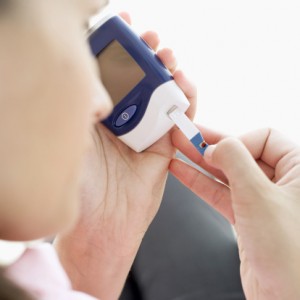

 Rheumatoid arthritis treatment with steroid therapy (glucocorticoid) raises the risk of diabetes, which increases with higher dosages and longer duration. Glucocorticoid, or steroid, therapy is prescribed to nearly half of rheumatoid arthritis patients, but it is a known risk factor for the development of diabetes.
Rheumatoid arthritis treatment with steroid therapy (glucocorticoid) raises the risk of diabetes, which increases with higher dosages and longer duration. Glucocorticoid, or steroid, therapy is prescribed to nearly half of rheumatoid arthritis patients, but it is a known risk factor for the development of diabetes.
The researchers looked at the medical records of over 20,000 patients with rheumatoid arthritis. They compared the new-onset diabetes rates in patients on steroid therapy and those who were not.
The researchers uncovered that glucocorticoid therapy was associated with a new case of diabetes for every 150-200 people treated annually. The risk correlated to the dosage in the most recent six months of taking steroids. Each five-mg increase in the daily dose brought the risk of diabetes up by 25 to 30 percent.
Research lead Dr. Will Dixon said, “Doctors treating people with arthritis have to make a decision how best to prescribe glucocorticoids by balancing the benefits against the risks. However, until now, no studies have considered how the risk changes with the dose and duration of treatment. This research provides important evidence for doctors to make this decision.”
Although glucocorticoid therapy increases the risk of diabetes, researchers are not suggesting the patients go off their treatment, as steroids have long been used effectively for rheumatoid arthritis symptom reduction.
Dr. Dixon concluded, “This research shows that low doses of steroids (below five mg/ day) do not increase the risk of diabetes. However, there is an increased risk of acquiring diabetes for people who use them for long periods or at high doses, which can now be quantified.”.
Glucocorticoid (steroid) therapy can be used effectively for treating rheumatoid arthritis, but along with its benefits it also comes with some risks. Low dosages are often prescribed to reduce the risk of complications and side effects associated with glucocorticoid therapy.
The main benefit of glucocorticoid therapy is the relief of rheumatoid arthritis symptoms, from joint pain to mobility. Adverse effects of the therapy include weight gain, elevated blood pressure, glucose intolerance, and a risk of diabetes, along with diabetic complications such as the formation of cataracts, glaucoma, increased risk of infection, high cholesterol, and adverse gastrointestinal effects.
Risks associated with glucocorticoid therapy are often linked to the dosage and duration of the therapy. Speak with your doctor about your dosage and the length of treatment. Despite the risks associated with steroids, you should not stop taking your medication without the advice of your doctor.
Rheumatoid arthritis cause and prevention may be linked to gut bacteria: Study
Rheumatoid arthritis (RA) cause and prevention may be linked to gut bacteria, according to a recent study. We previously reported on the association between the onset of rheumatoid arthritis and gut microbiota, and the latest findings offer additional evidence on gut bacteria playing a role in the development of RA. Continue reading…
Rheumatoid arthritis and insomnia linked to depressive symptoms, fatigue, and disability
Rheumatoid arthritis (RA) and insomnia linked to depressive symptoms, fatigue, and disability. The findings of the study suggest that addressing sleep issues in rheumatoid arthritis patients may improve depressive symptoms, fatigue, and disability. Continue reading…
Sources:
http://www.manchester.ac.uk/discover/news/diabetes-risk-of-common-arthritis-medicine-quantified-for-first-time/
http://onlinelibrary.wiley.com/doi/10.1002/art.39537/abstract
http://www.medscape.com/viewarticle/837165
Copyright © www.orthopaedics.win Bone Health All Rights Reserved